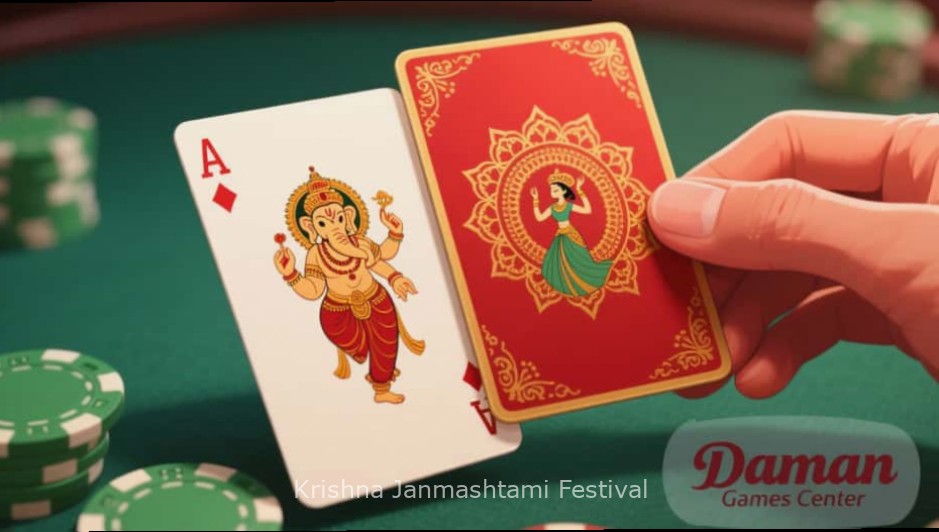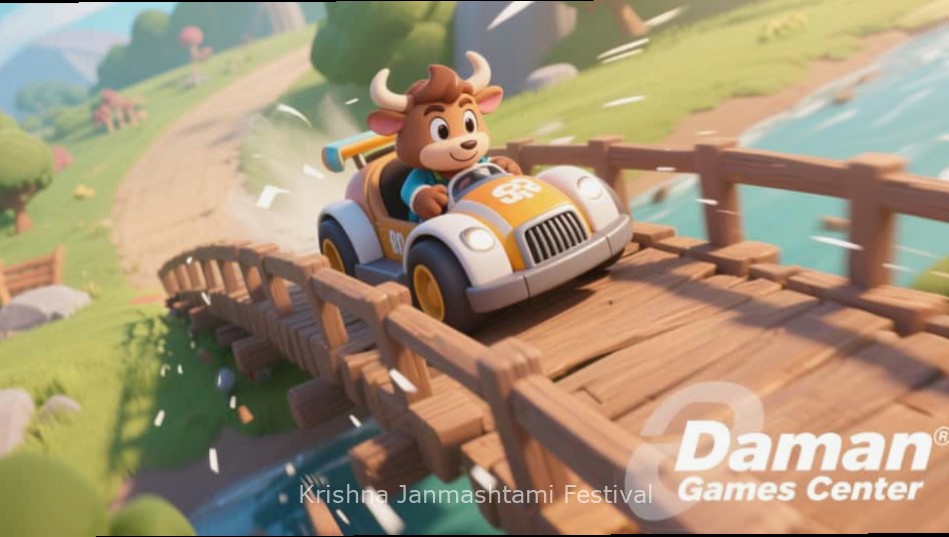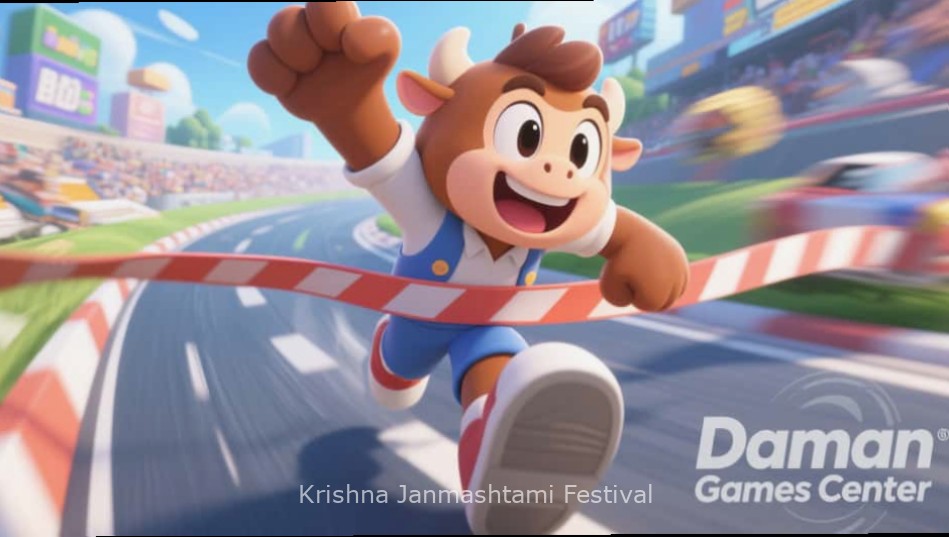Krishna Janmashtami Festival
The Krishna Janmashtami Festival is one of India's most vibrant and widely celebrated religious occasions. It marks the birth anniversary of Lord Krishna, the eighth avatar of Lord Vishnu in Hindu mythology.
Celebrated with great devotion across the country, this festival brings together people from all walks of life to honor Lord Krishna's life and teachings. The Krishna Janmashtami Festival is observed on the eighth day (Ashtami) of the dark fortnight in the month of Bhadrapada, according to the Hindu calendar.
Devotees believe that Lord Krishna was born at midnight to Devaki and Vasudeva in Mathura, overcoming the tyranny of his maternal uncle, Kansa. This divine birth is celebrated with night-long prayers, rituals, and joyous festivities.

Introduction to Krishna Janmashtami Festival
The Krishna Janmashtami Festival holds a special place in the hearts of millions of Indians. It's not just a religious event but a cultural phenomenon that showcases India's rich heritage and spiritual depth.
Lord Krishna, whose birth is celebrated during this festival, is one of the most beloved deities in Hinduism. His life stories, from his mischievous childhood as Makhan Chor (butter thief) to his role as a guide and philosopher in the Bhagavad Gita, have inspired countless generations.
The Krishna Janmashtami Festival celebrations reflect different aspects of Krishna's life. From reenacting his childhood pastimes to reciting his teachings, the festival offers a comprehensive experience of Krishna consciousness.
What makes this festival truly special is its ability to unite people across different regions, languages, and social backgrounds. Whether in the northern plains, southern states, or eastern parts of India, the Krishna Janmashtami Festival is celebrated with equal fervor, albeit with regional variations.
Key Traditions of Krishna Janmashtami Festival
Fasting (Vrata)
A significant tradition associated with Krishna Janmashtami Festival is fasting. Devotees observe a day-long fast, which is broken at midnight after the birth ceremony of Lord Krishna.
The fast typically involves abstaining from grains and non-vegetarian food. Instead, devotees consume fruits, milk, and sattvic (pure) preparations. Some observe a strict fast with only water until midnight.
This practice is believed to purify the body and mind, allowing devotees to focus more intensely on spiritual activities throughout the day.
Puja and Arati
Elaborate puja (worship) ceremonies form the core of Krishna Janmashtami Festival celebrations. Temples and homes are decorated with flowers, rangoli, and lights to welcome Lord Krishna.
Idols of baby Krishna are dressed in colorful clothes and jewelry, placed in cradles, and worshipped with offerings of flowers, incense, lamps, and sweets—especially butter and milk-based preparations, which are said to be Krishna's favorites.
Arati ceremonies, where devotees sing hymns while waving a lamp in front of the deity, create a mesmerizing atmosphere filled with devotion and spirituality.

Jhankis (Tableaux)
Jhankis or tableaux depicting scenes from Lord Krishna's life are a popular tradition during Krishna Janmashtami Festival. These elaborate displays showcase important events from Krishna's life, from his birth to his various leelas (divine pastimes).
Communities often compete to create the most impressive jhankis, which are visited by people throughout the day. This tradition not only entertains but also educates younger generations about Krishna's life and teachings.
Midnight Celebrations
The most sacred moment of Krishna Janmashtami Festival is midnight, the time when Lord Krishna is believed to have been born. At this hour, temples and homes erupt in joyous celebrations.
Bells ring, conch shells are blown, and devotees chant "Hare Krishna" as they perform the birth ceremony. The cradle containing the baby Krishna idol is rocked, and prasadam (sanctified food) is distributed among all present.
This moment is considered highly auspicious, and many devotees stay awake all night, engaged in prayers and devotional singing.
Regional Celebrations of Krishna Janmashtami Festival
While the essence of Krishna Janmashtami Festival remains the same across India, different regions have developed unique ways to celebrate this occasion, adding to the festival's diversity and richness.
Dahi Handi in Maharashtra and Gujarat
One of the most spectacular Krishna Janmashtami Festival traditions is Dahi Handi, popular in Maharashtra, Gujarat, and parts of North India. This vibrant event is based on the legend of Krishna stealing butter from earthen pots hung high by his mother Yashoda.
During Dahi Handi, earthen pots filled with curd, butter, milk, fruits, and sometimes money are suspended at great heights. Teams of young men and boys, called "Govindas," form human pyramids to reach and break these pots.
Large crowds gather to cheer for the Govindas, with music and drums creating a festive atmosphere. The tradition promotes teamwork, courage, and community spirit, making it a favorite among both participants and spectators.

Mathura and Vrindavan Celebrations
The cities of Mathura and Vrindavan in Uttar Pradesh, closely associated with Lord Krishna's life, host some of the most elaborate Krishna Janmashtami Festival celebrations in the country.
Mathura, Krishna's birthplace, and Vrindavan, where he spent his childhood, attract millions of devotees during this time. The entire region is decorated with lights and flowers, creating a magical atmosphere.
Special processions (shobha yatras) featuring idols of Lord Krishna are taken through the streets, accompanied by music, dance, and devotional singing. Temples like Banke Bihari Temple in Vrindavan and Krishna Janmabhoomi in Mathura organize special rituals and events.
South Indian Traditions
In South India, Krishna Janmashtami Festival is celebrated with unique traditions that reflect the region's cultural heritage. In Tamil Nadu, the festival is known as Gokulashtami and features the Uriyadi tradition, where blindfolded participants try to break pots filled with curd.
In Karnataka, Andhra Pradesh, and Telangana, homes and temples are decorated with colorful rangolis, and special bhajans (devotional songs) in regional languages are sung throughout the night.
South Indian families prepare a variety of traditional sweets and savories as offerings to Lord Krishna, many of which are unique to the region's culinary traditions.
Krishna Janmashtami Festival: The Official Game
In recent years, the Krishna Janmashtami Festival has expanded into the digital realm with the launch of an official mobile game that brings the festival's joy and traditions to life through interactive gameplay.
Developed with input from cultural experts and game designers, the Krishna Janmashtami Festival game offers players an immersive experience that educates while entertaining, making it popular among people of all ages.
Gameplay and Features
The Krishna Janmashtami Festival game allows players to experience various aspects of the festival through engaging mini-games and challenges:
• Dahi Handi Challenge: Players form virtual human pyramids to break pots at different heights, with increasing difficulty levels. Timing and strategy are crucial to succeed in this popular game mode.
• Temple Decoration: Customize and decorate virtual temples with flowers, lights, rangoli, and other traditional decorations, earning points for authenticity and creativity.
• Prasadam Preparation: Learn to make traditional sweets and offerings associated with Krishna Janmashtami Festival through step-by-step cooking challenges.
• Krishna Leela Reenactments: Play through key events from Lord Krishna's life, completing missions that teach important moral lessons from his stories.
• Bhajan Singing: Test your knowledge of devotional songs by matching lyrics and melodies, with a library of traditional and modern bhajans.

Download Statistics in India
Since its launch, the Krishna Janmashtami Festival game has achieved remarkable success in the Indian market, reflecting the festival's popularity and the game's engaging design.
Game Performance in India
The game has seen particularly high download rates in Maharashtra, Uttar Pradesh, Gujarat, Delhi NCR, and Karnataka—regions where Krishna Janmashtami Festival celebrations are most elaborate.
Downloads typically surge in the months leading up to the festival, with a 300% increase in the two weeks immediately before Janmashtami, as players prepare to celebrate the occasion through the game.
Player Reviews and Feedback
The Krishna Janmashtami Festival game has received overwhelmingly positive reviews from Indian players, with many praising its educational value and authentic representation of traditions.
Parents have particularly appreciated how the game helps children learn about Krishna Janmashtami Festival traditions in an engaging way. Many schools have even incorporated the game into their cultural education programs.
One reviewer from Mumbai wrote: "The Dahi Handi challenge in the Krishna Janmashtami Festival game is so realistic! My kids now understand the tradition much better and are excited to watch the real celebrations in our neighborhood."
A user from Chennai commented: "As someone who grew up with South Indian traditions, I love how the game includes our regional customs alongside the more well-known ones. It's a great way to learn about India's cultural diversity."
Critics have praised the game's high-quality graphics, intuitive gameplay, and attention to cultural details, which make it both entertaining and educational.
Localized Version Differences
To cater to India's diverse cultural landscape, the Krishna Janmashtami Festival game offers several localized versions that incorporate regional traditions and languages:
• North Indian Version: Emphasizes Dahi Handi and Mathura-Vrindavan traditions, with Hindi and Punjabi language options. Includes special content related to Krishna's association with the Braj region.
• Maharashtrian Version: Features elaborate Dahi Handi mechanics with regional music (lavani and powada). Includes Marathi language support and references to local saints associated with Krishna devotion.
• South Indian Version: Incorporates Uriyadi (Tamil Nadu), and other regional traditions. Available in Tamil, Telugu, Kannada, and Malayalam, with Carnatic music and dance elements.
• Bengali Version: Highlights Krishna's association with Vaishnavism in Bengal, with special emphasis on Radha-Krishna traditions. Includes Bengali language support and Baul music influences.

Indian Player Strategies and Tips
Indian players have developed various strategies to excel in the Krishna Janmashtami Festival game, sharing their insights through online communities and gaming forums:
For the Dahi Handi challenge, top players recommend building a wide base for your human pyramid before attempting to reach higher levels. It's also important to time your jumps carefully when reaching for the pot, as mistimed moves can cause the entire structure to collapse.
In the temple decoration mini-game, focusing on traditional items that reflect regional aesthetics can earn bonus points. Many players suggest researching real temple decorations from different parts of India for inspiration.
For the prasadam preparation challenges, practicing the recipes in free mode before attempting timed challenges helps improve speed and accuracy. Learning about the significance of each dish in Krishna Janmashtami Festival traditions can also provide clues to perfecting each recipe.
Regular participation in daily events is another tip shared by experienced players, as these often provide rare items and rewards that help progress through the game more quickly.
Localized Events and Community Features
The Krishna Janmashtami Festival game regularly hosts special events that coincide with real-world celebrations, keeping the gameplay fresh and relevant:
• Janmashtami Countdown: A 30-day event leading up to the festival, with daily challenges related to festival preparations.
• Midnight Celebration Event: A 24-hour special event on the day of Janmashtami, featuring exclusive rewards and challenges available only at midnight.
• Regional Competitions: Players from different states compete against each other in challenges that showcase their regional traditions.
The game also features a vibrant community section where players can share photos of their real-world Krishna Janmashtami Festival celebrations, exchange recipes, and discuss the significance of different traditions.
Cultural Impact and Educational Value
Beyond entertainment, the Krishna Janmashtami Festival game has made significant contributions to preserving and传播印度文化. It has become a valuable educational tool, helping younger generations connect with their heritage in a format they enjoy.
Many cultural organizations have praised the game for its accurate representation of traditions and its ability to make cultural education engaging. It has also helped spread awareness about regional variations of Krishna Janmashtami Festival celebrations across different parts of India.
The game's success has demonstrated the potential for digital platforms to serve as vehicles for cultural preservation, making traditional knowledge accessible to new audiences.
Conclusion: The Timeless Appeal of Krishna Janmashtami Festival
The Krishna Janmashtami Festival continues to thrive as a beloved tradition in India, adapting to changing times while preserving its core spiritual and cultural values. From grand temple celebrations to intimate home gatherings, and now to digital experiences like the Krishna Janmashtami Festival game, the festival's essence remains unchanged.
It celebrates not just the birth of a deity, but also the universal values of love, wisdom, courage, and devotion that Lord Krishna represents. These values resonate with people across generations, making the Krishna Janmashtami Festival a timeless tradition that continues to enrich Indian culture.
Whether experienced through traditional celebrations or modern digital platforms, the Krishna Janmashtami Festival offers a unique opportunity to connect with India's spiritual heritage and celebrate the joy of life.
Related Tags
krishna janmashtami festival dahi handi krishna janmashtami game indian festivals hindu celebrations krishna leela indian cultural games govinda mathura vrindavan janmashtami traditionsGame Categories
This game is recommended by daman games. To discover more优质 Indian games, please visit daman games.